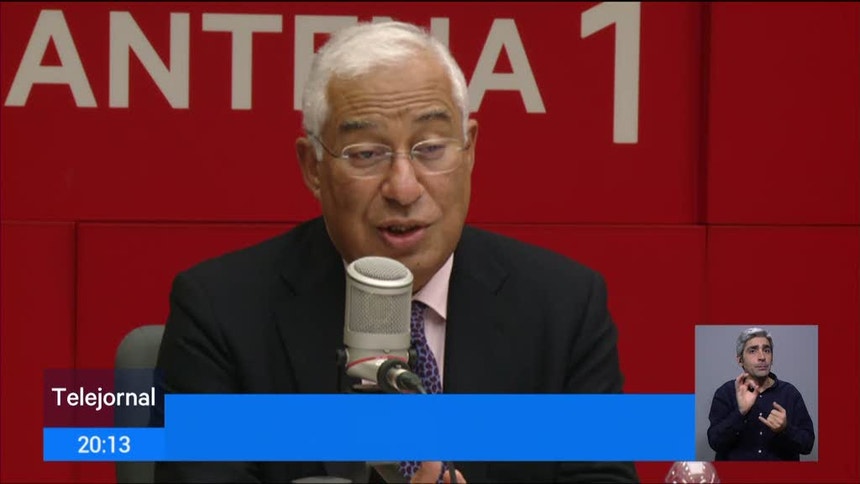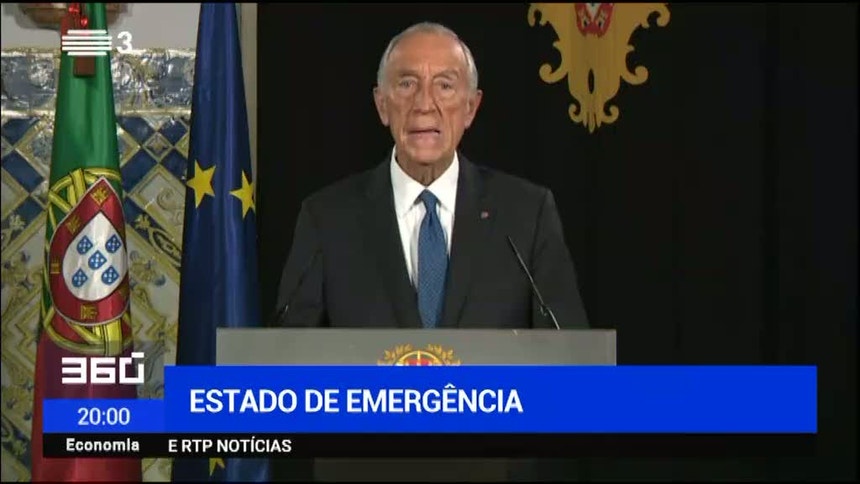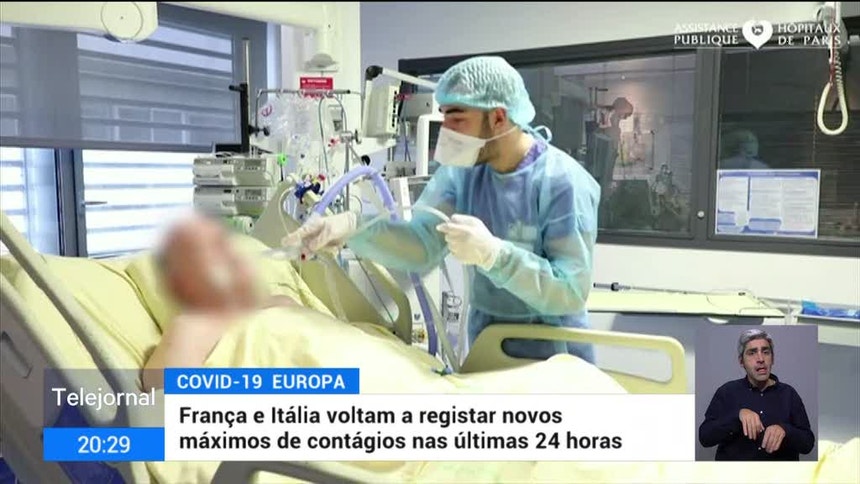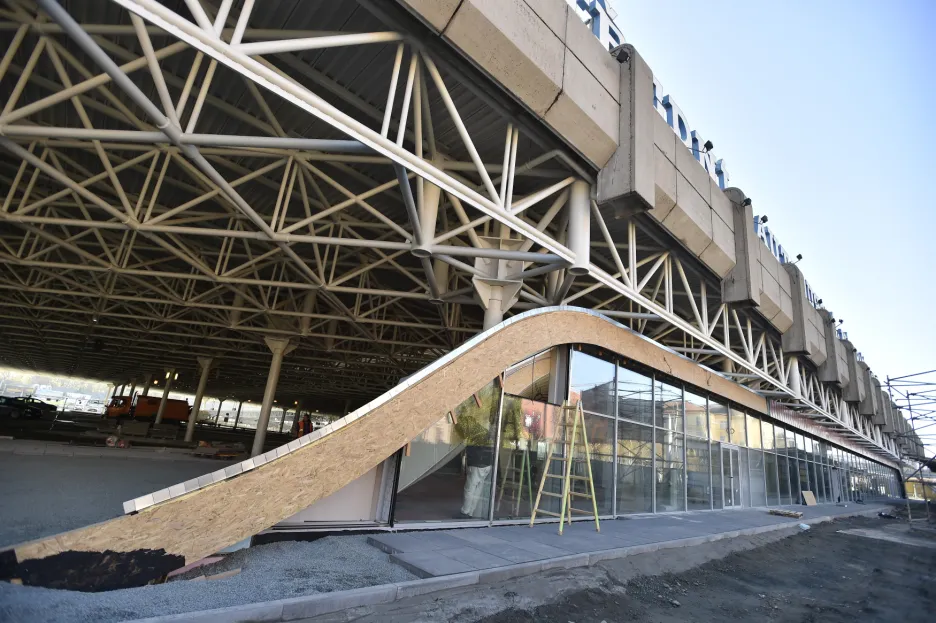More updates
8h16 – São João tests all patients on the fifth day of hospitalization
São João Hospital, in Porto, is preparing to test all patients on the fifth day of hospitalization, in order to screen for possible cases of Covid-19 not detected on admission.
“We know that with the increase in transmission in the community, we have some patients who come with a negative test, but they may eventually be infected at a pre-symptomatic stage”, said, in statements to the Lusa agency, the coordinator of the Prevention and Control Unit of Infections and Antimicrobial Resistance at Centro Hospitalar e Universitário São João, Carlos Lima Alves.
8:15 am – Germany reports new figures
The number of confirmed cases of infection with the new coronavirus in Germany has increased, in the last 24 hours, by 23,399, to a total of 642,488 since the beginning of the pandemic.
Data from the Robert Koch Institute for Infectious Diseases also report an increase in the number of fatal cases from Covid-19 by 130, to a total of 11,226.
7h54 – Intensive care units close to rupture
The deadline is calculated at ten days.
According to the newspaper Express, some of the most respected doctors in the National Health Service believe that diseases that kill more than Covid-19 are being neglected.
Therefore, they understand that it is urgent to have a contingency plan for other diseases.
In an interview with the newspaper, the president of the Portuguese Society for Intensive Care says that if there is no
flattening the curve, there are patients who will be without bed.
In December, 70 people are expected to die each day.
7:15 am – State of play
–
The Executive of António Costa meets this Saturday, in an extraordinary Council of Ministers, with a view to materialize the measures that will frame the state of emergency decreed by the President of the Republic, to be in force between next Monday and 23 November.
Before declaring a state of emergency for 15 days, Marcelo Rebelo de Sousa heard the Government, which gave a favorable opinion on Thursday, and had the green light of Parliament on Friday, with votes in favor of PS, PSD and CDS-PP, abstentions from BE, PAN and Chega and votes against from PCP, ENP and Liberal Initiative.
–
The new state of emergency decree does not include compulsory confinement. According to the prime minister, it presents “four dimensions”. The first aims to allow restrictions on travel, “namely in the municipalities with the highest risk level” and “during certain periods of the day or certain days of the week”.The state of emergency was in effect for the first time from March 19 to May 2, adding two consecutive renewals.
It also allows the imposition of body temperature controls and diagnostic tests of the new coronavirus to access certain locations and the mobilization of workers and the Armed Forces and security to reinforce health authorities in epidemiological investigations and in the tracking of contacts.
–
Also according to the decree of Marcelo Rebelo de Sousa, public authorities may use resources, means and health establishments from the private, social and cooperative sectors, “preferably by agreement” and “through fair compensation”, for the treatment of patients with Covid-19 or other diseases.
Chronology
Last Saturday, the Government was also meeting in the Council of Ministers to approve a set of measures to reinforce the prevention of Covid-19 and during which the Prime Minister announced that he would propose to the President of the Republic a hearing for the state’s declaration. of emergency.
On Monday António Costa asked the President of the Republic to declare the state of emergency, in a “preventive” way, to face the Covid-19 pandemic and eliminate legal doubts about the Government’s action.
Already this Friday, in an interview with Antena 1, the head of the Government stated that the measures included in the state of emergency decree will not all have to be adopted simultaneously.

–
“On the edge [o estado de emergência] it may go on until the end of the pandemic, but that does not mean that the measures, in particular, last permanently. We can have measures that last for a weekend, as happened last week, and then disappear “, said Costa.
The statement by Marcelo Rebelo de Sousa
In a message to the country, Marcelo Rebelo de Sousa announced yesterday that he had signed the decree of the second state of emergency.
The President reiterated that this is a “very limited and largely preventive” state of emergency and said that the month of November is “a test” to avoid “more drastic restrictions”.
Marcelo Rebelo de Sousa stressed that we are facing a “negative and very rapid evolution” of the pandemic, “which is important to contain, also learning from what, in several areas, has not gone well in the past”.
As I had already announced, this is a state of emergency “very limited, without compulsory constraints and largely preventive, because it focuses on preventing the growth of the pandemic, while strengthening the response of health structures”.

–
This new state of emergency, as explained by the President of the Republic, “makes it possible to extend the screening, screening and contact with hundreds of thousands of fellow citizens, namely using our exceptional Armed and Security Forces”.
It also provides legal coverage for “new measures, such as limiting circulation in certain hours and days in municipalities with the highest risk” and calls for “greater articulation, preferably by agreement and always with fair compensation between the National Health Service and the private and social or cooperative sectors “.
The picture in Portugal
Portugal returned on Friday to reach a new maximum of daily cases, when reporting another 5550 infections and 52 deaths in 24 hours.
The highest number of daily cases had been reached on October 30, when 4656 new infections were registered in 24 hours. However, on November 4, 7497 new cases of infection were registered, when the sum of 3570 cases resulting from the delay in laboratory reporting, especially by a Northern laboratory, was included in the count since October 30.
Since the beginning of the pandemic, Portugal has recorded 2793 deaths and 166,900 cases of infection, with 70,354 cases now active.
The latest epidemiological bulletin from the Directorate-General for Health states that, of the 52 deaths recorded since Thursday, 25 occurred in the North region, 13 in Lisbon and Vale do Tejo, eight in the Center region and six in Alentejo.
2425 people are hospitalized, 63 more than on Thursday. In intensive care units there are 340 people – 20 more.The international framework
The Covid-19 pandemic has already caused more than 1.2 million deaths in more than 48.7 million cases of infection, according to the balance sheet which is constantly being updated by the agency France Presse.
Covid-19 is the disease caused by a new coronavirus, identified as SARS-CoV-2, detected in late December last year in Wuhan, a city in central China.
In Europe, France again registered, on Friday, a new record of infections. The country recorded 60,000 new cases and 800 deaths in the last 24 hours.

–
Italy also registered a new record of contagions, with a total of 37 thousand new cases in 24 hours.-
– .

 –
–
 –
–
 –
–

